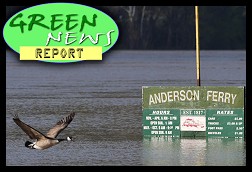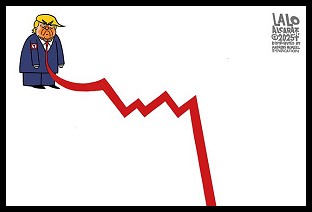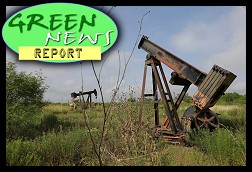 Daniel Ellsberg, the legendary "Pentagon Papers" whistleblower, is an ardent supporter of the WikiLeaks project and of its co-founder Julian Assange, who finds himself under attack from many corners. The man whom Secretary of State Henry Kissinger once called "the most dangerous man in America" recently traveled to London to appear at a press conference with the besieged Australian in support of his release of some 400,000 classified Iraq War logs. But, as Ellsberg revealed during my interview with him on Wednesday, he disagrees with Assange on at least one point in regard to the latest round of documents released by the controversial organization. Unlike Assange, Ellsberg does not believe Hillary Clinton needs to resign.
Daniel Ellsberg, the legendary "Pentagon Papers" whistleblower, is an ardent supporter of the WikiLeaks project and of its co-founder Julian Assange, who finds himself under attack from many corners. The man whom Secretary of State Henry Kissinger once called "the most dangerous man in America" recently traveled to London to appear at a press conference with the besieged Australian in support of his release of some 400,000 classified Iraq War logs. But, as Ellsberg revealed during my interview with him on Wednesday, he disagrees with Assange on at least one point in regard to the latest round of documents released by the controversial organization. Unlike Assange, Ellsberg does not believe Hillary Clinton needs to resign.
In an interview with TIME magazine earlier this week, in the wake of WikiLeaks' recent release of thousands of classified U.S. diplomatic cables, Assange responded to a question from managing editor Richard Stengel, saying that he felt the U.S. Secretary of State should step down.
"She should resign if it can be shown that she was responsible for ordering U.S. diplomatic figures to engage in espionage in the United Nations, in violation of the international covenants to which the U.S. has signed up," Assange told TIME. "Yes, she should resign over that."
But Ellsberg disagrees. During my on-air interview with him Wednesday, when I asked about that point and whether he agrees with Assange's assessment, he was direct in his response: "In a word, no," he told me.
Despite information from the released cables --- in this case, revealing that the State Department, under the approval of Clinton, ordered U.S. diplomats to spy on their foreign counterparts by secretly collecting personal information such as credit card numbers, frequent flier membership records, email addresses, even fingerprints and DNA --- Ellsberg does not believe the disclosure, which he concedes reveals illegalities, merits her resignation.
"I've come to respect Assange's judgment in a lot of these matters a lot more than I do the Pentagon spokespersons," Ellsberg said. "In this case, I don't agree with him."
Richard Nixon's former enemy, and the subject of the 2009 Oscar-nominated documentary The Most Dangerous Man in America, explained during our live interview on Pacific Radio's KPFK in Los Angeles on Wednesday that, in this case, at least, Assange may be "far too idealistic and romantic"...


 Trump EPA Guts Enviro Justice Office: 'BradCast' 4/24/25
Trump EPA Guts Enviro Justice Office: 'BradCast' 4/24/25 'Green News Report' 4/24/25
'Green News Report' 4/24/25
 Nation's Largest Broadcaster Mandates News Outlets Hoax Viewers to Help Gut FCC Rules: 'BradCast' 4/23/25
Nation's Largest Broadcaster Mandates News Outlets Hoax Viewers to Help Gut FCC Rules: 'BradCast' 4/23/25 Trump's FCC on Precipice of Ending All Limits on Corporate Control of Local TV Stations
Trump's FCC on Precipice of Ending All Limits on Corporate Control of Local TV Stations GOP Earth Day 2025 Hypocrisies and Dilemmas: 'BradCast' 4/22/25
GOP Earth Day 2025 Hypocrisies and Dilemmas: 'BradCast' 4/22/25 'Green News Report' 4/22/25
'Green News Report' 4/22/25 Pope Francis Dies,
Pope Francis Dies, Sunday
Sunday  Sunday 'Zero Day' Toons
Sunday 'Zero Day' Toons Soc. Sec. Expert Warns DOGE Hastening Collapse, Privati-zation: 'BradCast' 4/10/2025
Soc. Sec. Expert Warns DOGE Hastening Collapse, Privati-zation: 'BradCast' 4/10/2025 'Green News Report' 4/10/25
'Green News Report' 4/10/25 Trump Blinks, Chaos Reigns, Markets Spike as Many Tariffs Remain Despite 90-Day 'Pause': 'BradCast' 4/9/25
Trump Blinks, Chaos Reigns, Markets Spike as Many Tariffs Remain Despite 90-Day 'Pause': 'BradCast' 4/9/25 SCOTUS Deportation Ruling Grimmer Than First Appears: 'BradCast' 4/8/25
SCOTUS Deportation Ruling Grimmer Than First Appears: 'BradCast' 4/8/25 'Green News Report' 4/8/25
'Green News Report' 4/8/25 Cliff Diving with Donald: 'BradCast' 4/7/25
Cliff Diving with Donald: 'BradCast' 4/7/25 Sunday 'Don't Look Down' Toons
Sunday 'Don't Look Down' Toons 'Green News Report' 4/3/25
'Green News Report' 4/3/25 'Mob Boss' Trump's Trade Sanctions Tank U.S., World Markets: 'BradCast' 4/3/25
'Mob Boss' Trump's Trade Sanctions Tank U.S., World Markets: 'BradCast' 4/3/25 Crawford Landslide in WI; Booker Makes History in U.S. Senate: 'BradCast' 4/2/25
Crawford Landslide in WI; Booker Makes History in U.S. Senate: 'BradCast' 4/2/25 Judge Ends Challenge to GA's Unverifiable, Insecure Vote System: 'BradCast' 4/1/25
Judge Ends Challenge to GA's Unverifiable, Insecure Vote System: 'BradCast' 4/1/25 Bad Court, Election News for Trump is Good News for U.S.: 'BradCast' 3/31
Bad Court, Election News for Trump is Good News for U.S.: 'BradCast' 3/31 Vets Push Back at Plan to Slash Health Care, 80K V.A. Jobs: 'BradCast' 3/27/25
Vets Push Back at Plan to Slash Health Care, 80K V.A. Jobs: 'BradCast' 3/27/25 Signal Scandal Worsens for Trump, GOP; Big Dem Election Wins in PA: 'BradCast' 3/26
Signal Scandal Worsens for Trump, GOP; Big Dem Election Wins in PA: 'BradCast' 3/26 'Emptywheel': Trump NatSec Team Should 'Resign in Disgrace': 'BradCast' 3/25/25
'Emptywheel': Trump NatSec Team Should 'Resign in Disgrace': 'BradCast' 3/25/25 USPS 'Belongs to the People, Not the Billionaires': 'BradCast' 3/24/25
USPS 'Belongs to the People, Not the Billionaires': 'BradCast' 3/24/25
 VA GOP VOTER REG FRAUDSTER OFF HOOK
VA GOP VOTER REG FRAUDSTER OFF HOOK Criminal GOP Voter Registration Fraud Probe Expanding in VA
Criminal GOP Voter Registration Fraud Probe Expanding in VA DOJ PROBE SOUGHT AFTER VA ARREST
DOJ PROBE SOUGHT AFTER VA ARREST Arrest in VA: GOP Voter Reg Scandal Widens
Arrest in VA: GOP Voter Reg Scandal Widens ALL TOGETHER: ROVE, SPROUL, KOCHS, RNC
ALL TOGETHER: ROVE, SPROUL, KOCHS, RNC LATimes: RNC's 'Fired' Sproul Working for Repubs in 'as Many as 30 States'
LATimes: RNC's 'Fired' Sproul Working for Repubs in 'as Many as 30 States' 'Fired' Sproul Group 'Cloned', Still Working for Republicans in At Least 10 States
'Fired' Sproul Group 'Cloned', Still Working for Republicans in At Least 10 States FINALLY: FOX ON GOP REG FRAUD SCANDAL
FINALLY: FOX ON GOP REG FRAUD SCANDAL COLORADO FOLLOWS FLORIDA WITH GOP CRIMINAL INVESTIGATION
COLORADO FOLLOWS FLORIDA WITH GOP CRIMINAL INVESTIGATION CRIMINAL PROBE LAUNCHED INTO GOP VOTER REGISTRATION FRAUD SCANDAL IN FL
CRIMINAL PROBE LAUNCHED INTO GOP VOTER REGISTRATION FRAUD SCANDAL IN FL Brad Breaks PA Photo ID & GOP Registration Fraud Scandal News on Hartmann TV
Brad Breaks PA Photo ID & GOP Registration Fraud Scandal News on Hartmann TV  CAUGHT ON TAPE: COORDINATED NATIONWIDE GOP VOTER REG SCAM
CAUGHT ON TAPE: COORDINATED NATIONWIDE GOP VOTER REG SCAM CRIMINAL ELECTION FRAUD COMPLAINT FILED AGAINST GOP 'FRAUD' FIRM
CRIMINAL ELECTION FRAUD COMPLAINT FILED AGAINST GOP 'FRAUD' FIRM RICK SCOTT GETS ROLLED IN GOP REGISTRATION FRAUD SCANDAL
RICK SCOTT GETS ROLLED IN GOP REGISTRATION FRAUD SCANDAL VIDEO: Brad Breaks GOP Reg Fraud Scandal on Hartmann TV
VIDEO: Brad Breaks GOP Reg Fraud Scandal on Hartmann TV RNC FIRES NATIONAL VOTER REGISTRATION FIRM FOR FRAUD
RNC FIRES NATIONAL VOTER REGISTRATION FIRM FOR FRAUD EXCLUSIVE: Intvw w/ FL Official Who First Discovered GOP Reg Fraud
EXCLUSIVE: Intvw w/ FL Official Who First Discovered GOP Reg Fraud GOP REGISTRATION FRAUD FOUND IN FL
GOP REGISTRATION FRAUD FOUND IN FL



















 I'll be interviewing the 1970s legendary
I'll be interviewing the 1970s legendary  Those comments, and ones from JFK in 1961 which I also posted in the
Those comments, and ones from JFK in 1961 which I also posted in the  Our friend Harrison had a family emergency, so the folks at
Our friend Harrison had a family emergency, so the folks at 



 Some 250,000 classified cables and embassy dispatches from the State Department are being released today via WikiLeaks latest, and reportedly largest, document dump ever. Within the last hour, news reports based on those documents have begun to be published by various world media outlets that are said to have been given advanced access.
Some 250,000 classified cables and embassy dispatches from the State Department are being released today via WikiLeaks latest, and reportedly largest, document dump ever. Within the last hour, news reports based on those documents have begun to be published by various world media outlets that are said to have been given advanced access. Hang on to your black Friday dollars by listening to free talk radio tonight on the peoples' airwaves(!), as I finish out the week as guest-host on nationally syndicated
Hang on to your black Friday dollars by listening to free talk radio tonight on the peoples' airwaves(!), as I finish out the week as guest-host on nationally syndicated 
 Texas puts the hammer down. Tom DeLay found guilty on all counts.
Texas puts the hammer down. Tom DeLay found guilty on all counts. 















